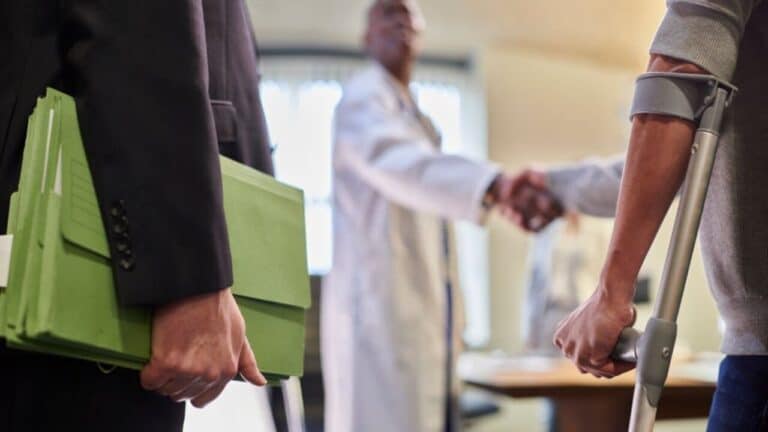After deposition, the parties in a personal injury lawsuit typically begin the negotiation process. This is the process during which the parties make offers and counter offers regarding the payout to the injured person. If the case is not settled and it goes to trial, information from the deposition may be brought up during the trial.
Personal injury cases sometimes involve depositions or meetings during which the parties discuss various issues. Depositions are formal discussions that a court reporter typically records. Anything somebody says during a deposition may be used during the personal injury case.
Our personal injury lawyers provide legal representation, assistance, and support to injured parties seeking compensation. Call our firm today for guidance in your case.

The Discovery Process May Continue After a Deposition
A deposition is often just one part of the discovery process during a personal injury lawsuit.
Discovery may also involve:
- Requests for production of documents: The parties may officially request certain documents, such as medical records or employment records. These documents may be valuable pieces of evidence during the case. Subpoenas may also be used to request important documents during a personal injury case.
- Interrogatories: An interrogatory is an official question that a party is required to answer truthfully and fully. Interrogatories may be used to gather information about a person’s injuries or the effect the injuries have on their life. The party answering the questions is doing so under oath, so honesty is crucial. A party may be asked about their prior medical history, insurance coverage, or actions on the day of an accident.
- Requests for admission: Requests for admission involve sending a statement to a party and asking that party to either admit to or deny the statement. For example, somebody accused of causing a car accident may be asked to admit or deny that they were driving at a certain speed just prior to the accident. These statements and the responses to the statements may be used during settlement negotiations or during a trial.
Working Toward a Settlement After a Deposition in a Personal Injury Lawsuit
Although it is possible for a personal injury case to go to trial, many personal injury cases result in mutually agreed-upon settlements. During the settlement negotiation process, the parties explain their reasoning behind their offers and argue for fair outcomes. They go back and forth until a settlement offer is reached that both sides can agree to.
It is important to work with an attorney who can advocate on your behalf during settlement negotiations. Liable parties in a personal injury lawsuit are generally interested in reducing the amount they pay to the injured person as much as possible.
The Parties May Ask for a Summary Judgment After a Deposition in a Personal Injury Lawsuit

If parties in a personal injury lawsuit cannot reach a settlement, they may ask the court for a summary judgment. Either party can move for summary judgment; the defendant would argue that the case, or certain causes of action, should be dismissed. The liable party has an opportunity to respond and provide additional information and opinions about the outcome of the case.
Even if a summary judgment is won, however, a trial is needed to determine the damages if the case didn’t settle.
A Personal Injury Trial May Follow a Deposition
In some cases, a personal injury lawsuit cannot be settled outside of court. If a personal injury case goes to trial, each side will have an opportunity to present arguments. The personal injury lawyer representing the injured person may bring witnesses to the stand, such as eyewitnesses to an accident or experts who can offer professional insight regarding the injuries and damages in the case.
The main steps in a personal injury trial include:
- The jury members are selected.
- Each side makes opening statements.
- Witnesses provide testimony and are examined and cross-examined.
- Both sides make their closing arguments.
- The jury deliberates and reaches a decision.
Call Our Law Firm for Help During Your Personal Injury Lawsuit
If the information above seems overwhelming, remember that you do not have to handle your personal injury case on your own. Our personal injury attorneys can represent you during a deposition and anything that follows the deposition, including settlement negotiations or a personal injury trial.
Call Shulman & Hill at 866.880.0645 for a free consultation.